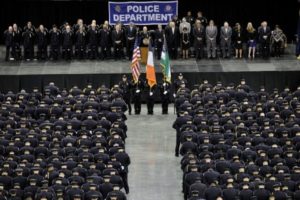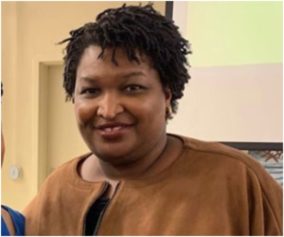
(Photo: Diana Robinson/Flickr)
Once again, law enforcement has resurrected the concept known as the Ferguson effect, the notion that because of the Black-led protest movement against police violence that seeks reform and transparency and accountability, police are reluctant to perform their jobs. As a result, as the flawed and erroneous theory goes, crime will increase.
The latest cry of support for the Ferguson Effect comes from the Chicago Police Department, a department that has been embroiled in scandals involving police corruption, the illegal use of deadly force against Laquan McDonald and others, and the CIA-style secret detention of Black men. If any police force would have an interest in Black protest and protesters simply going away, it would be the Windy City.
This week, a 13-year veteran of the Chicago police force was severely beaten at the scene of a car accident. And although she reportedly feared for her life, she did not fire her gun on her attacker because she was afraid that shooting the man would bring negative media attention, according to the Washington Post.
“As I was at the hospital last night, visiting with her, she looked at me and said she thought she was gonna die and she knew that she should shoot this guy, but she chose not to, because she didn’t want her family or the department to go through the scrutiny the next day on national news,” said Chicago Police Department Superintendent Eddie Johnson of the officer, who is 43 and has not been identified, as the Chicago Tribune reported. “This officer could have lost her life. … We have to change the narrative of the law enforcement across this country,” Johnson said, adding that police officers are now forced to “second-guess” themselves now that they are under such intense scrutiny.
Criminologists are largely unconvinced when it comes to the Ferguson effect, and President Obama and Attorney General Lynch have said there is nothing there. However, FBI Director James Comey has blamed Black Lives Matter for a rise in violent crime, and Chicago Mayor Rahm Emanuel has done his part to promote the false notion that cops have become “fetal” for fear of facing indictment or termination because of their actions.
The logic that governs the Ferguson effect is problematic for a number of reasons. For example, for all of the years that police officers have been killed by white people, have these officers ever harbored an irrational fear of white folks? Have the police ever declared that they must engage in more aggressive policing against white people due to their criminality?
Consider the case of Trent Forster, 18, a white teen who was charged in the shooting death of a St. Louis County police officer. As Fox2Now reported, police responded to a call in which Forster demanded to be let in the house of his girlfriend. When police arrived and asked to see Forster’s hands, he reportedly shot the officer ambush style. Police returned fire and shot Forster several times, putting him in the hospital. But why isn’t the Ferguson effect ever mentioned when the lives of white suspects–including individuals such as Trent Forster, or for that matter, other white shooters fresh from the kill–are spared? Did the police take mass murderer Dylann Roof to the Burger King because they were afraid of the bad news reports they would otherwise receive? Is it possible to save a Black life and not attribute it to the Ferguson effect? Does that mean that all Black people are criminals, and based on that alone, deserve to die?
Support for the Ferguson effect among law enforcement and their apologists only exposes the raw racial bias that undergirds policing in America, something which was present since the days of the slave patrols and is not easily eradicated, absent some radical restructuring and redefining of the police. The problem is that police have absolutely no accountability or transparency. The fact of the matter is that no one is telling police they must not draw their weapons. However, there must be standards that govern the use of deadly force, rather than what occurs today, in which each of the countless law enforcement agencies around the country employs its own guidelines–or simply nothing at all, except to shoot a Black man as a matter of course, or when the officer is afraid of Black men, which seems to be all the time, and fears for his or her life. And when the people who protest the killing of Black people by police are criminalized and themselves blamed for violence against police, this is a bait and switch–a blatant attempt to change the subject and scapegoat the messenger. It cheapens Black lives in the process, and makes light of our suffering under continuous and unabated oppression, and state-sponsored lynching.
And if officers always fear for their lives, especially when they see a Black man, woman or child, then perhaps they are in the wrong line of work. And perhaps policing as it stands is not a suitable profession for anyone to have–that is, if it requires the officially sanctioned lynching of Black people as a mater of course, and the killing of Black bodies–any and all it encounters– as its default setting.


